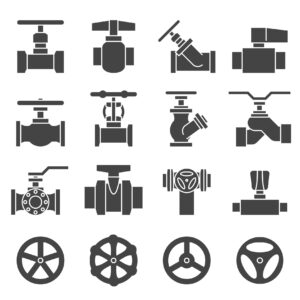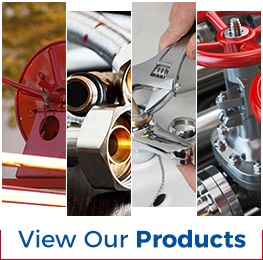
Control valves are as central to any hose set-up as the hoses themselves. Whether we’re talking about watering suburban backyards or supplying a town’s fire department, you simply need quality valves you can really depend on. Let us give you a general overview and teach you how to select a type that fits just right.
A quick introduction
Control valves are essential to regulating almost any type of liquid. In order to select a valve that works for you, it is important to consider the purposes for which the valve in question will be used.
In simple terms, a basic valve is used to permit or restrain the flow of fluids such as water, hydraulic fluid, air, chemicals, and many other substances. The valve itself works in conjunction with the actuator and, if necessary, a valve control device. The actuator is the part of the system that provides the required force to cause the closing part of the valve to move. Valve control devices, in turn, keep the valve in proper operating conditions by ensuring appropriate positions, interpreting signals, and manipulating responses.
Types of valves
There are four general types of valves, which we list in the following section:
- Electronic or electric valves: the movement of the instrument regulating the flow is controlled electronically through circuits or digitally. These types of valves tend to be the most expensive.
- Non-return valves: these valves only allow one-direction flow.
- Electromechanical valves: electro magnets control whether the valve is opened or closed.
- Mechanical valves: these valves rely on mechanical energy to open and close the actual valve.
Factors to consider when choosing a valve
Like we said earlier, you have to think about purpose when choosing a valve. Think about it: when you’re shopping for a new car, you think about the way you will use it. If you know you will be driving long distances and can’t splurge on gas, you likely won’t get a Jeep Wrangler. Similarly, if you need a valve to regulate fluids in both ways, you won’t and shouldn’t get non-return valves.
Here are some factors to consider when choosing a valve:
- Size and flow capacity
- Temperature limits
- Material durability
- Cost
- Shutoff response to leakage
In short
Now that you know the basics, you’re ready to start shopping around. And with a 24,000 square foot facility, here at ASJ Industrial Hose & Fitting we have plenty of options for your considerations. Speak to someone from our team today and learn more information: (951) 735-1351.



 Phone:
Phone: